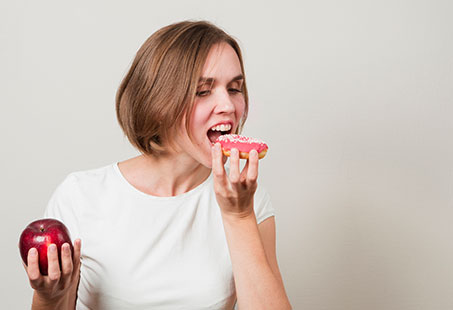Your oral health is influenced by the kind of foods you eat. While not all of them are bad, many are actually beneficial, there are others that can wreak complete havoc.
Mainly, it’s the carbs, short for carbohydrates, that are most problematic. But carbohydrates include sugar, starch and dietary fibre, and while sugar and starches are bad for the teeth, that’s not the case with dietary fibre.
Discerning foods that are good and bad for the teeth isn’t exactly simple or easy (even foods labelled “sugar free” can still have sugar). Also, some of the foods that you might consider healthy can mean bad news for your teeth.
So, here, we’ve compiled a list of some popular foods that damage teeth, which could mean any solid or liquid consumables that can deteriorate your oral health. It may help you make better choices for your oral health.
Which Foods Harm Teeth?
Some of the foods that can harm your teeth include:
Candies
Whether they’re hard, soft or chewy, you’ll always hear that candies are bad for the teeth.
One study published in Health Promotion Perspectives found that daily consumption of 100% juice, candies for more than once a week, and bedtime sweet drinks and soft drinks were all linked to a higher risk of cavities in children.
The high sugar content of candies is very bad for the teeth because it allows oral bacteria to produce acids that damage enamel. Additionally, candies have a tendency to stick to the teeth, so they don’t come off as easily, either.
For this reason, it’s important for you to be careful about eating:
- Sour gummies
- Jellies
- Lollipops
- Taffy
- Caramel
- Cotton candies
- Chocolate
- Jellybeans
- Licorice
- Candy corn
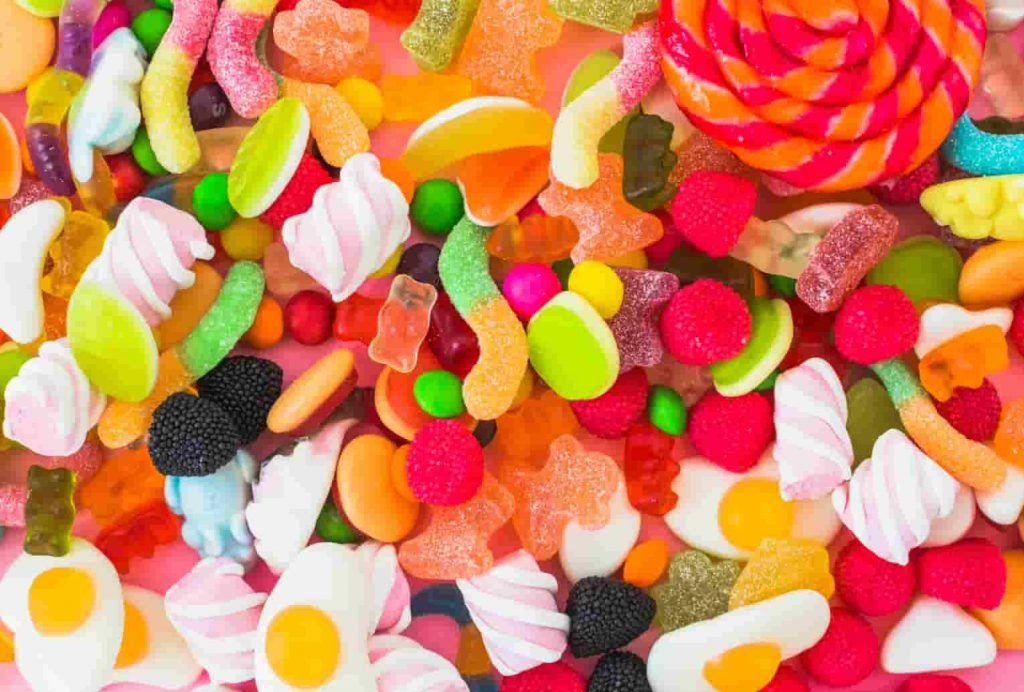
Sugary Cereals
Cereals are marketed as the ultimate, nutrition-packed meals for breakfast. However, these can also contain a lot of sugar, which can harm your teeth.
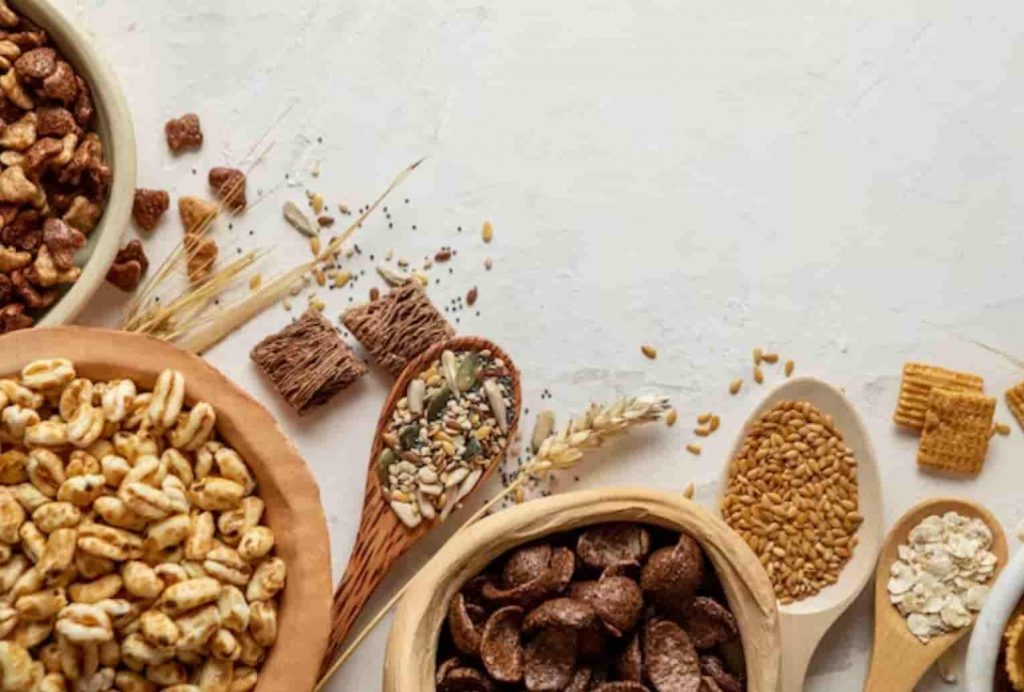
Baked Desserts
While they may be very scrumptious, you should know they can also do a lot of damage. This can include foods such as:
- Cakes
- Muffins
- Pies
- Brownies
- Cookies
- Cake pops
- Crumbles
- Donuts
- Tarts
- Pudding
- Shortbread
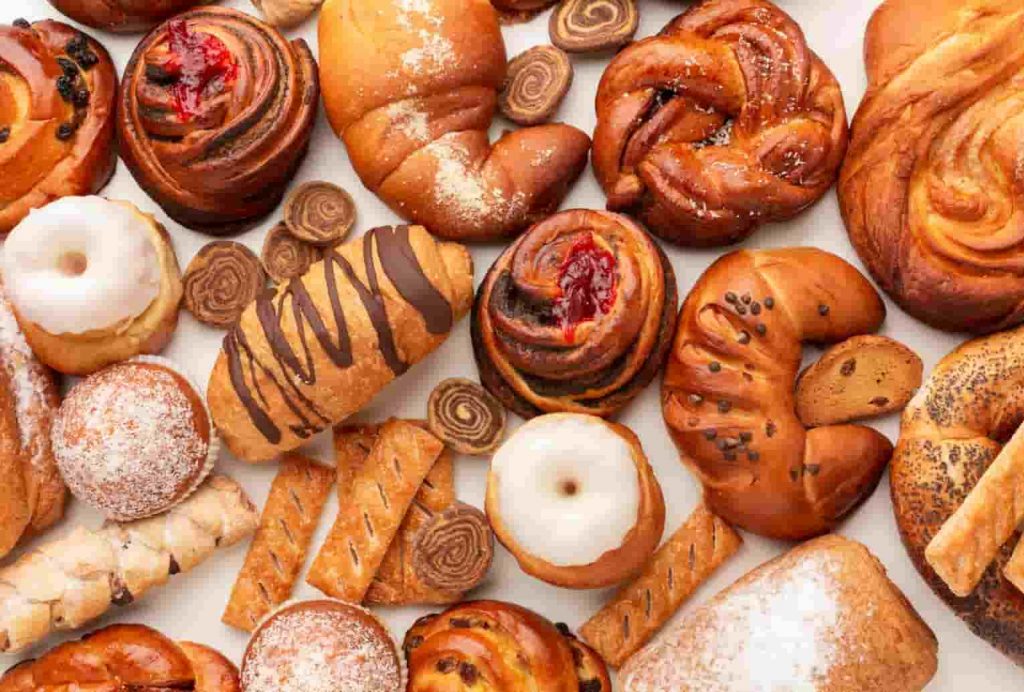
You must keep in mind that things won’t end at enamel erosion. If it keeps going on, you can even lose your tooth or teeth entirely.
And that can further impact the condition of your jawbone. Also, if you already have poor oral health, you can even throw gum disease in the mix.
That’s because according to the Cleveland Clinic, a colourless biofilm called plaque forms on the teeth when bacteria comes together with sugar or starch.
If that plaque is not dislodged (as from brushing), it will harden and lead to an infection of the gums.
Chips
There is no doubt that chips are a bad food for your teeth, even according to the American Dental Association (ADA).
They warn that starchy foods like these can get stuck between the teeth. And if you’re not into the habit of flossing, it can cause plaque build-up.
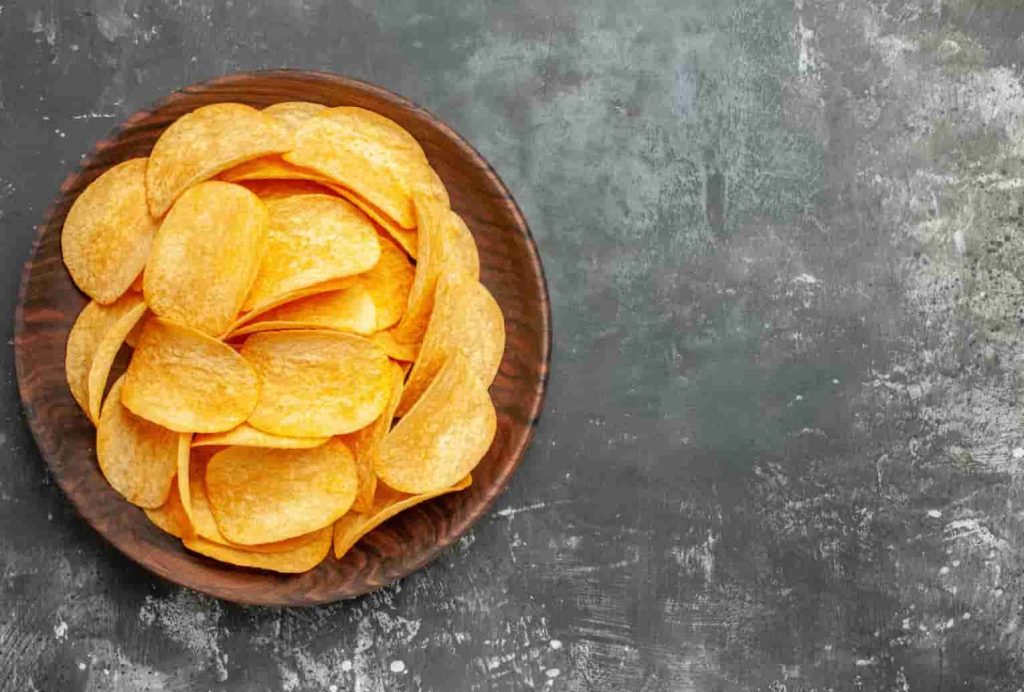
Other than that, a review published in the Journal of Dental Research found that there was no link between how much starch was eaten and tooth decay. The latter refers to the destruction of the enamel by the bacteria through the production of acids. It can form a hole in the tooth.
However, it found that the more processed starch increases risk of cavities because starch breaks down into sugar within the mouth.
Bread
The bread you eat can also contain a lot of sugar, which can harm your teeth. Some breads also contain other ingredients like raisins and cinnamon which makes them even sweeter.
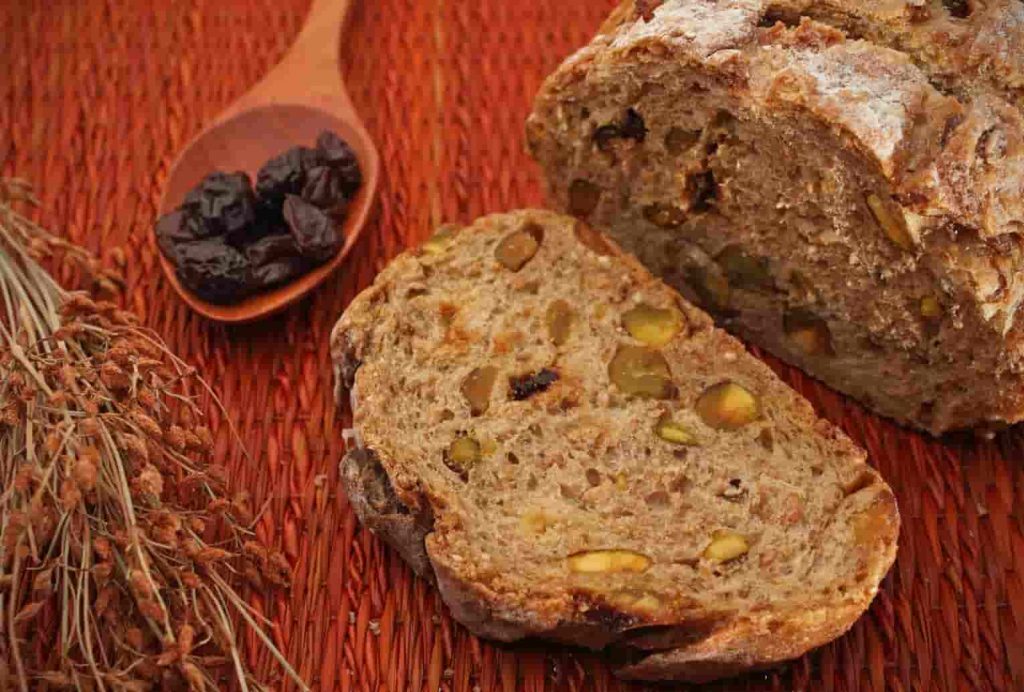
From potato bread to simple white bread, make sure to check the ingredients of the loaves that you’re buying.
You should also be careful about the gummy bits of bread getting stuck between your teeth.
White Rice
White rice is another refined carb that you need to be wary of when it comes to your teeth. It can also be high in sugar, which can fuel the bacteria in the mouth to produce acids and damage your teeth.
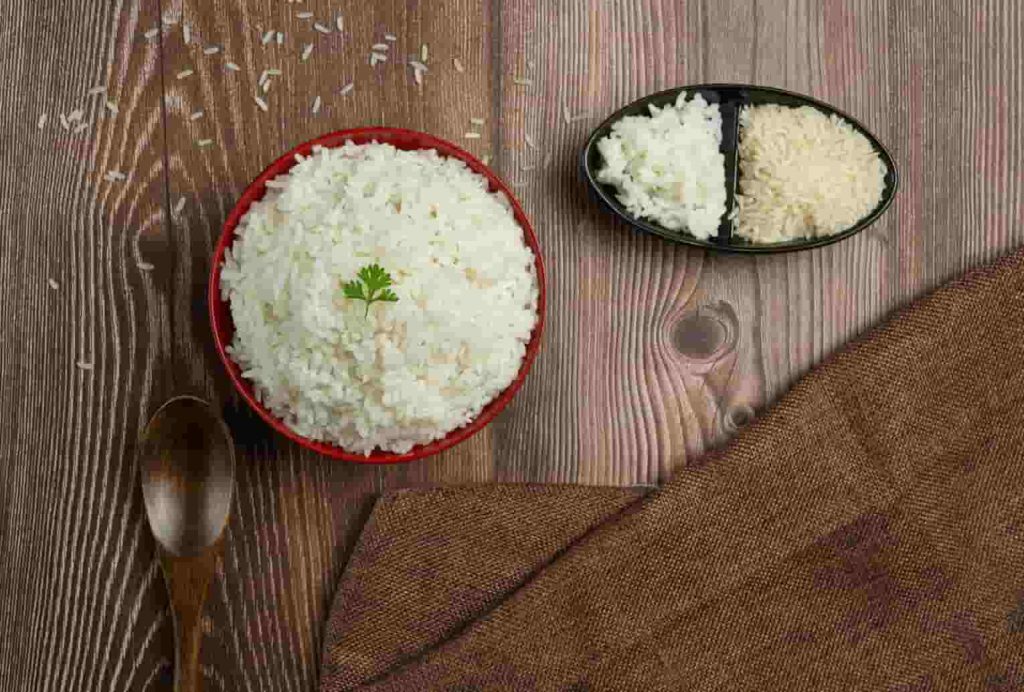
Fizzy Drinks
Fizzy drinks have a bad rap for a reason. Your teeth alone can suffer in a plethora of ways because of them. Colas, in particular, can also stain your teeth.
Plus, much research shows the harmful effects of fizzy drinks on teeth. One study published in the Journal of Dental Research simply compared the effects of carbonated soft drinks with milk, water and juice.
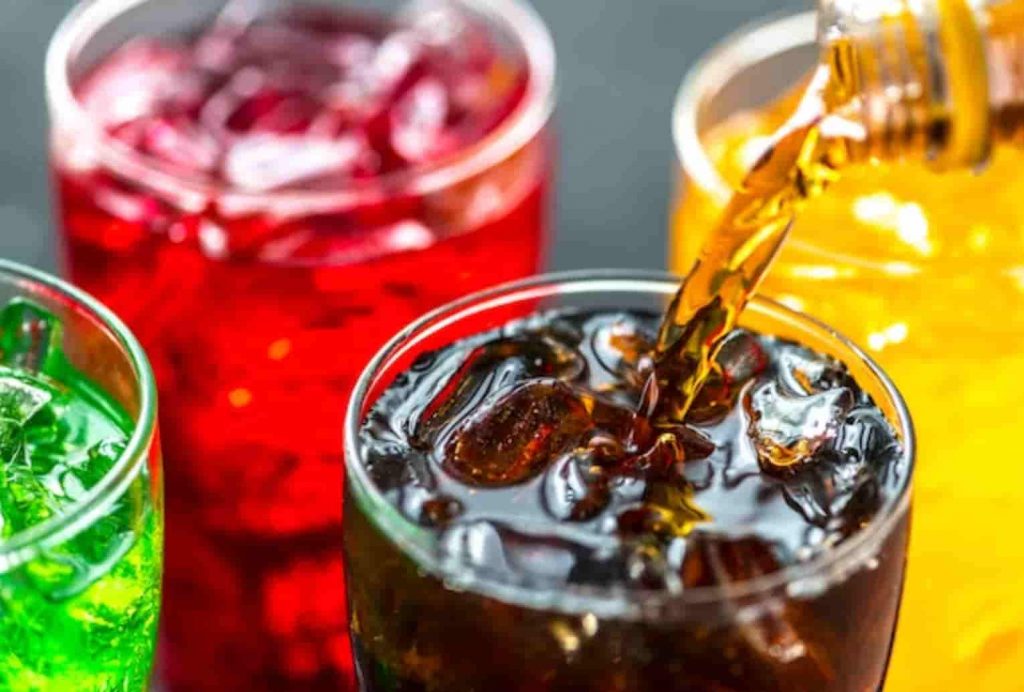
And (of course) it found that those children who drank soft drinks had more dental caries than those who didn’t.
Mineral loss, enamel erosion, and rougher teeth are also a few other things that you might experience from enjoying such beverages.
Coffee & Tea
While the relationship between teeth health and coffee and tea consumption is somewhat controversial, you should still consider limiting their intake.
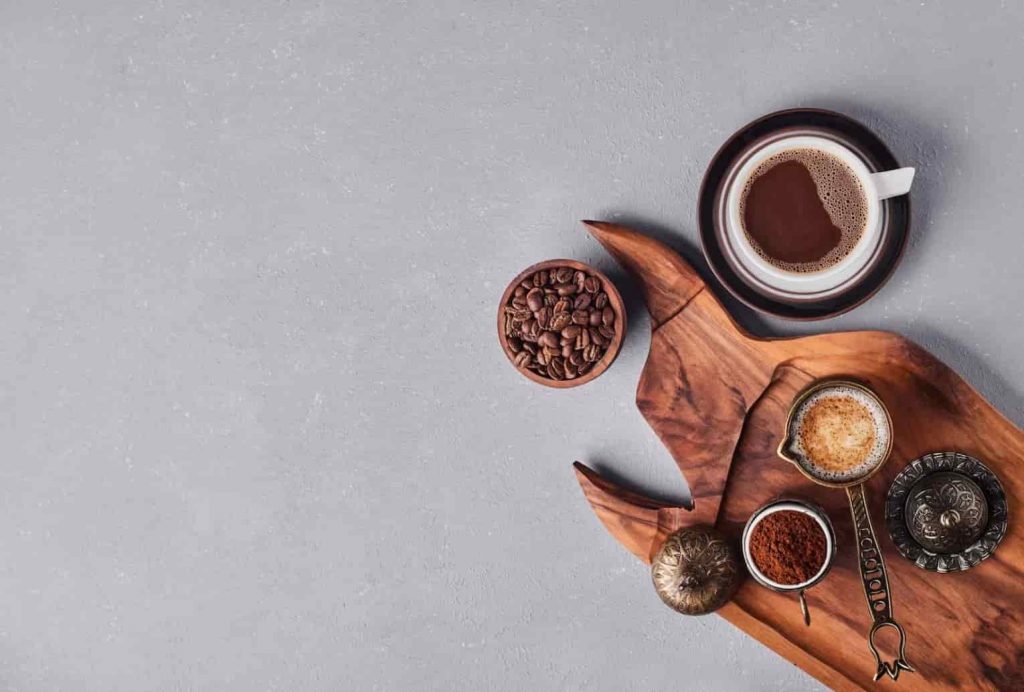
Both tea and coffee are acidic. Additionally, they can make your mouth dry. Dry mouths can increase the risk of infection and even tooth decay. Besides, these two can also stain your teeth yellow.
Alcohol
Different researches have shown that alcohol consumption is linked to tooth decay and gum disease. It can also give you a dry mouth, which can further worsen your oral health.
Meanwhile, keep in mind that certain types of alcohols, like red wines can also stain your teeth.

Others
Some other foods that can damage your teeth include:
- Crackers
- Pretzels
- Fermented foods (e.g. sauerkraut)
- Granola bars
- Peanut butter
- Jams
- Pickles
- Vinegar
- Ketchup
- Soy sauce
- Sports drinks
Acidity and/or high sugar content is the problem with a lot of them. But others, like soy sauce and ketchup, can also stain your teeth.
Which Fruits Harm Teeth?
Here are some fruits that might end up hurting your teeth:
Lemons
This doesn’t come as a surprise to many people anymore. Lemons are notorious for their sourness owing to the presence of citric acid.
And while you might not want to eat them raw, its juicy lemonade is still a popular refreshment.
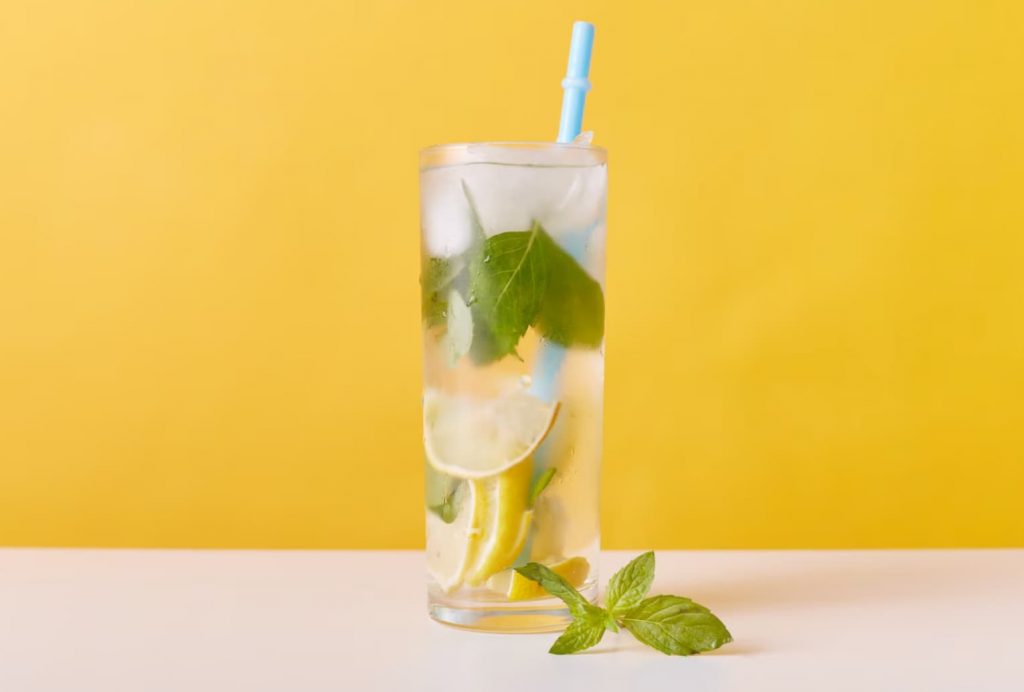
Only the ADA warns that lemon’s acidity can damage the protective enamel on your teeth. As a result, they can become more vulnerable to cavities and decay.
Plus, it never feels good to have a mouth sore get washed with concentrated acid. So, if you have one, you should be extra careful.
Limes are not so different from lemons, either. In fact, both have more or less the same amount of citric acid in them.
Also, regarding both limes and lemons, the WebMD warns that large amounts of raw citrus fruit juices can cause nausea, gastrointestinal discomfort, and acid reflux.
In an acid reflux, stomach acid backs up into the mouth, and that can erode the inside surfaces of the teeth as well.
Oranges
Unlike lemons, oranges are quite often eaten whole. That’s because they’re much less acidic than lemons.
Only they’re still acidic, and so they can also damage your teeth by causing enamel erosion. Plus, oranges can also irritate your sores.
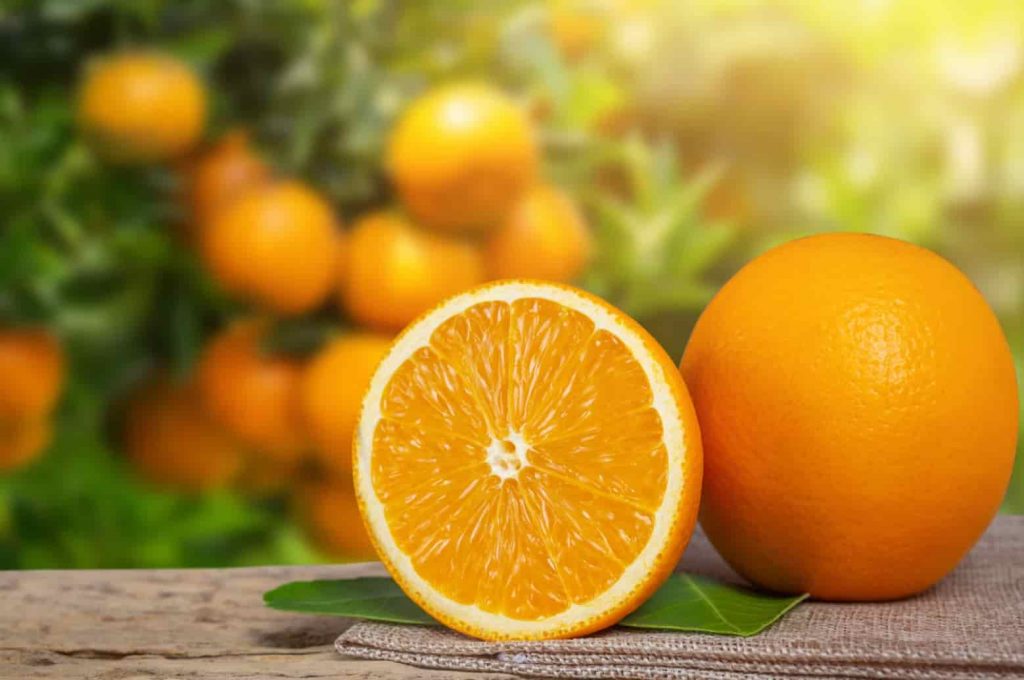
The other thing is that oranges also tend to have more sugar in them, and if you’re drinking a glass of orange juice, it’s going to have even more sugar.
And sugar is considered the most common cause of dental cavities. It’s metabolised by the bacteria in the mouth, which, in turn, produce acids. These acids then also damage the tooth enamel.
Grapefruit
Another citric fruit that’s quite acidic is grapefruit. Just like oranges and lemons, it can cause enamel wear. And once this first line of defence is down, your teeth can be very easily decayed.
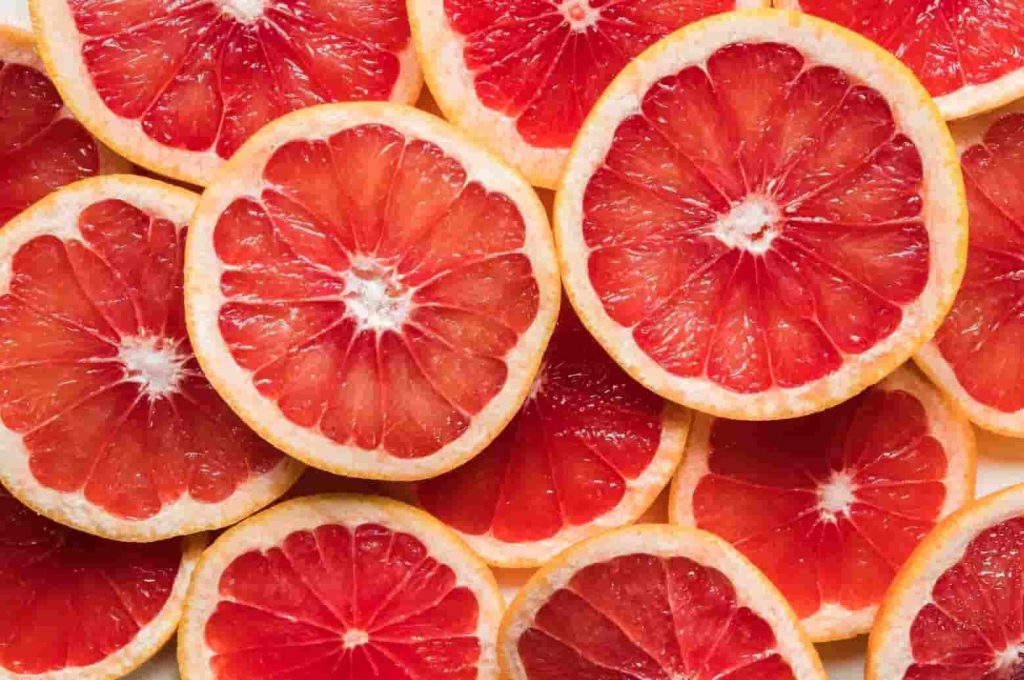
Here, it’s also important to remember that you cannot regrow your enamel. So, once it’s damaged, it’s gone for good.
Additionally, grapefruit juice (and other citrus juices) can also cause heartburn and acid reflux.
Pineapple
Pineapple is another acidic fruit, having a pH between 3 and 4. And there are also concerns about this fruit causing an acid reflux.
Combine this with the high sugar content of pineapple (just one cup has 16 grams of sugar), it’s best if you consume this fruit in moderation.
Strawberries
This fruit became quite popular among the DIY-community for its (alleged) teeth whitening prowess. In truth, because of the citric acid contained within this fruit, again, your enamel can be in the harm’s way.
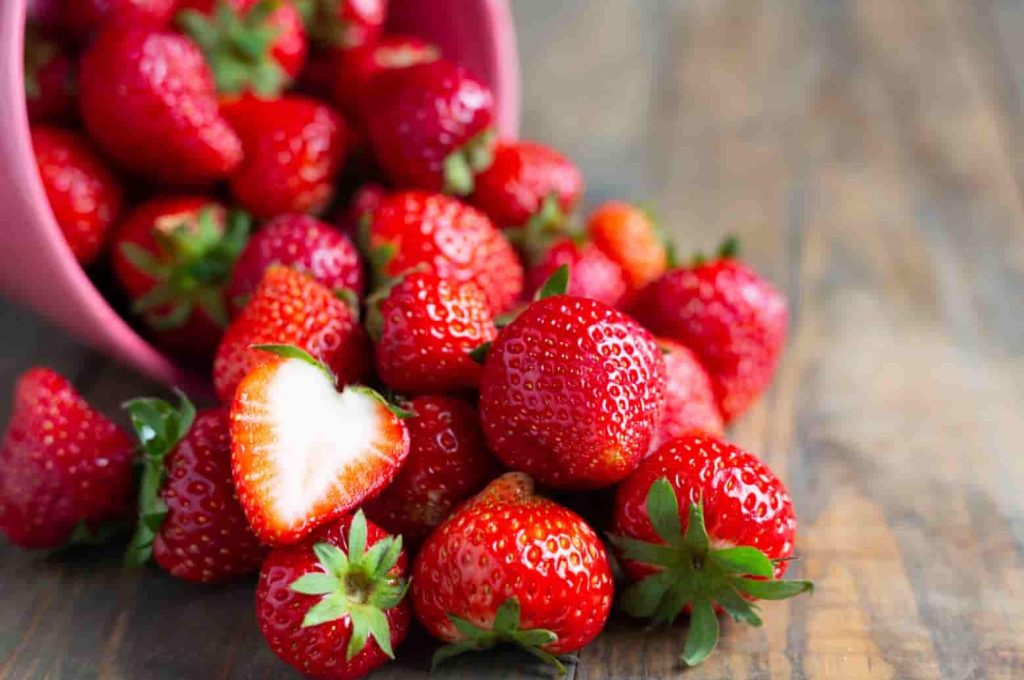
One study published in the International Journal of Paediatric Dentistry also found that the seemingly safe and healthy strawberry (and banana) smoothies also have a potential to erode the teeth.
Peaches
Peaches are also acidic fruits that can cause wear of your enamel.
Sugar is not so much of a problem with them. Because even though they taste sweet, one cup of peach contains about 14 grams of sugar in it.
Still, you shouldn’t eat too many of these as that’s what actually causes problems.
Plum
This stone fruit also has a low pH, making it acidic. It also doesn’t contain a lot of sugar, but the same cannot be said about its dried form (prunes).
While a fresh plum contains around 7 grams of sugar, an ounce of prune contains about 11 grams of sugar.
Blueberries
Because of their very small size, they might seem quite harmless, but blueberries are also very acidic. And if you like to snack on them, you might end up eating too many without realising.
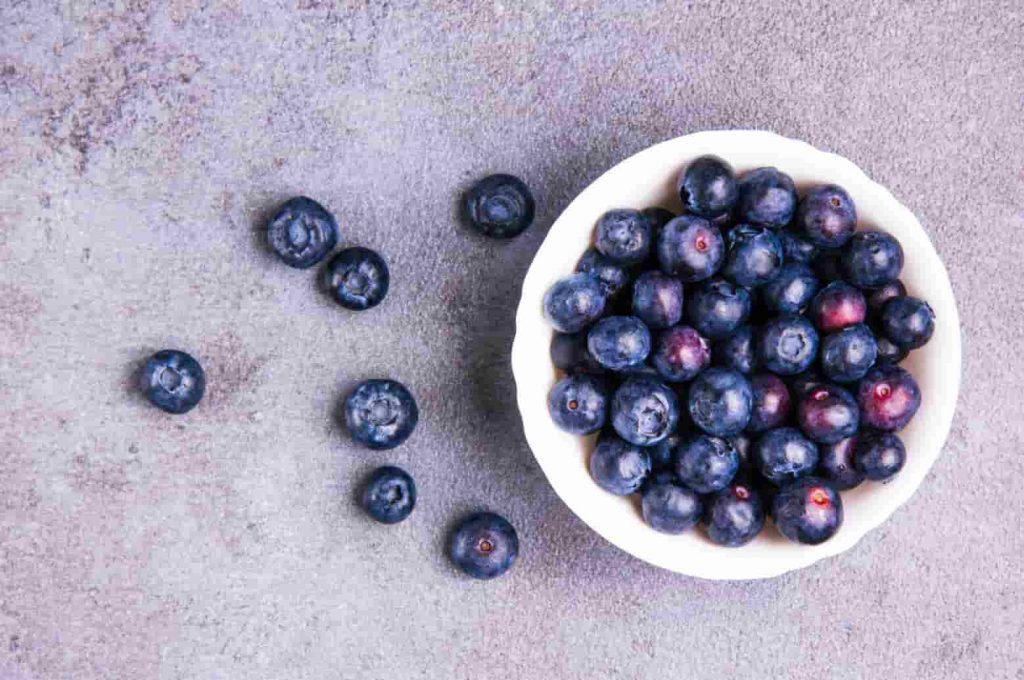
It also contains a moderate amount of sugar, around 11 grams in 1 cup. But with these, too, moderation is key.
Grapes
With grapes, the problem’s the same: they are acidic. And that can negatively affect your tooth enamel.
Additionally, this fruit is very high in sugar, so even though its size is small, eating too many of these won’t be too good for your teeth.
Tomatoes
Tomatoes are fruits, and these are also acidic in nature. It means that these can also damage your teeth. Plus, tomatoes can trigger an acid reflux.
Other than damaging the enamel of the teeth, tomatoes are also well-known for straining the teeth.
Raisins
There is some controversy surrounding raisins’ reputation as teeth damaging fruits. On the one hand, it’s argued that their stickiness makes them difficult to remove from the teeth. Besides, they’re high in sugar content.
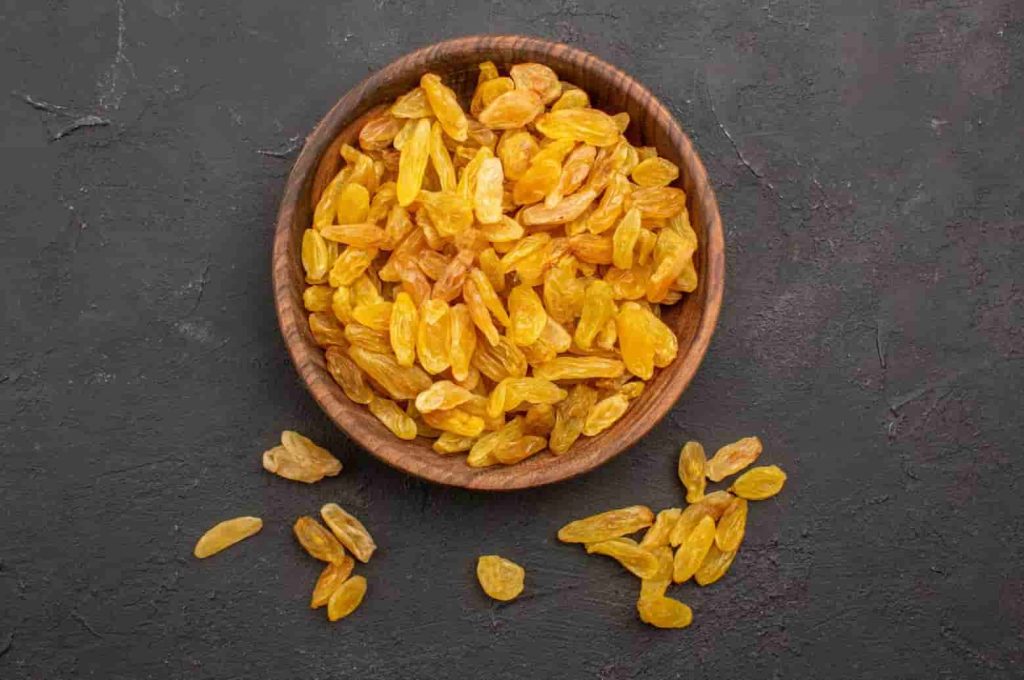
However, according to a review published in the International Journal of Food Sciences and Nutrition, the idea that dried fruit (like raisins) is bad for the teeth because of its stickiness and sugar content is actually “based on weak evidence.”
Some research even suggests that raisins may protect the teeth against cavities because they contain certain antimicrobial chemicals.
What To Do If Your Tooth Breaks While Eating?
If your tooth breaks while you’re eating something, it’s important to get in touch with your dentist as soon as possible. Even if you don’t feel anything, you must get treatment to not worsen your condition.
Depending on how bad things are, it’s possible that your dentist simply repairs the tooth with composite bonding.
However, it’s also possible that you might need a root canal or even an extraction (in which case you might even be recommended dental implants in Turkey by your dentist). Or if you want to have a more durable and long-lasting teeth reinforcement, you can get dental crown or veneer.
Just keep in mind that speed is of the utmost importance. Replanting a tooth is possible. According to StatPearls, the success rate is highest when the tooth has been outside of the body for only 30 minutes.
What Foods Don’t Damage Your Teeth?
Here are some foods that won’t damage your teeth:
- Diary – Containing calcium and vitamin, dairy foods can be especially beneficial for your teeth. For e.g., cheese, yoghurt, and milk.
- Nuts – Packed with calcium, vitamins and minerals, nuts, like cashews, peanuts, walnuts, can also be good for your teeth.
- Vegetables – Many are packed with nutrients that may help with your oral health as well, such as broccoli, kale, yams, potatoes, spinach, peas, shiitake mushrooms, celery, carrots, garlic, onions, etc.
- Fruits – While some acidic and citrus fruits may harm your teeth, there are many, such as mangoes, kiwis, apples, bananas, melons, which can be very good.
- Proteins – Certain proteins may also help your oral health in different ways. These can include chicken, red meat, fish, beans, tofu, etc.
- Sugarless gums – Mainly, this can help by stimulating production of saliva which can then wash over your teeth to keep it clean.
Of course, this list is by no means exhaustive. It’s important that you further consult your dentist about foods that will best meet your oral health needs.
How Can You Strengthen Your Dental Health?
Dental health, meaning the condition of your gums, teeth, and mouth, can be improved if you:
- Eat healthy foods.
- Eat acidic and citrusy foods in moderation.
- Limit your intake of caffeinated beverages and alcohol.
- Avoid snacking a lot.
- Brush your teeth twice a day.
- Floss once a day.
- Stay hydrated.
- Get regular dental checkups.
These measures may help you maintain your oral health for a long time.
Conclusion
Dental care, which refers to taking care of your teeth so they remain in optimal condition, is something that is significantly influenced by the foods you eat.
While some foods are outright bad, there are others that, in moderation, might not do anything to your teeth. For instance, while some fruits are acidic, they are also packed with other nutrients that can be good for your health.
It’s important that you further consult a dentist about a diet plan that will best meet your individual needs.
Reviewed and approved by Dr Izbel Aksit
